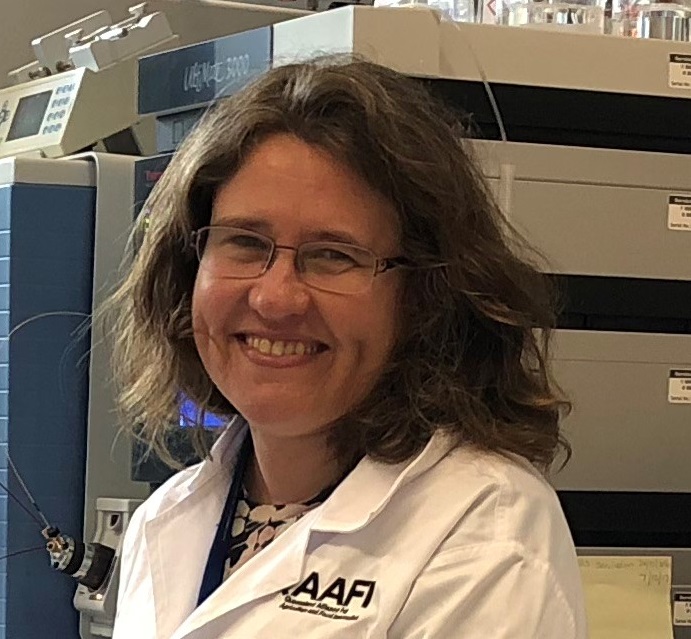Stingless bee honey - a novel source of the beneficial disaccharide trehalulose
Abstract:
Stingless bees (Meliponini), with 500 known species, occur in tropical/sub-tropical regions and their honey has long been prized by Indigenous communities worldwide for its health benefits.1 However, a stingless beehive generates less than a kilogram of honey per year. Examination of this honey from 5 species, found high levels of an unusual disaccharide, which was isolated, and identified as the sucrose isomer, trehalulose. Analysis of 36 honey samples showed that trehalulose, which has known beneficial bioactive properties, was the dominant sugar. Recent work aims to identify the origin of trehalulose and how to optimise its levels in stingless bee honey.
- Heard, T., The Australian Native Bee Book. Keeping stingless bee hives for pets, pollination and sugarbag honey. Sugarbag Bees: West End, Queensland, 2016.
Dr Natasha Hungerford
 Natasha is a Research Fellow in the Natural Toxin group within the QAAFI Centre for Animal Science, based at the Health and Food Sciences Precinct (Cooper's Plains). She an organic chemist with an interest in natural products and is utilising analytical techniques such as liquid chromatography-tandem mass spectrometry, to look at natural toxins found in certain plants, such as pyrrolizidine alkaloids and simplexin. Current research aims to mitigate the effects of Pimelea plant toxins on cattle. Further collaborative projects involve the analysis of Australian honey and the novel beneficial properties of stingless bee honey.
Natasha is a Research Fellow in the Natural Toxin group within the QAAFI Centre for Animal Science, based at the Health and Food Sciences Precinct (Cooper's Plains). She an organic chemist with an interest in natural products and is utilising analytical techniques such as liquid chromatography-tandem mass spectrometry, to look at natural toxins found in certain plants, such as pyrrolizidine alkaloids and simplexin. Current research aims to mitigate the effects of Pimelea plant toxins on cattle. Further collaborative projects involve the analysis of Australian honey and the novel beneficial properties of stingless bee honey.
Dr Natasha Hungerford, Research Fellow,
Centre for Animal Science, Queensland Alliance for Agriculture and Food Innovation
E: n.hungerford@uq.edu.au T: +61 7 344 32473
Media on the topic:
Science sweetens native honey health claims
For any questions, please contact the QAAFI Science Seminar Committee.
About Science Seminars
Queensland Alliance for Agriculture and Food Innovation hosts science seminars across the disciplines of animal, horticulture, crop, food and nutritional sciences.
With a range of speakers from Australia and abroad, the series explores how high-impact science will significantly improve the competitiveness and sustainability of the tropical and sub-tropical food, fibre and agribusiness sectors.
View Science Seminar pageSign up to receive QAAFI Science Seminar notifications
Email Science Seminar Committee
The Queensland Alliance for Agriculture and Food Innovation is a research institute at The University of Queensland, established with and supported by the Queensland Department of Primary Industries.

